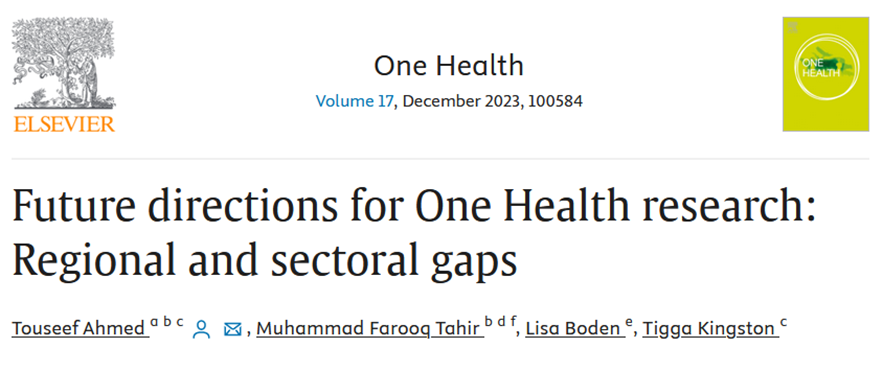
Touseef and co-authors conducted a comparative analysis of abstracts presented at the 1st (2011) and 6th (2020) World One Health Congresses (WOHC) to examine the evolution and current state of One Health research, focusing on demographic, disciplinary scope, and geographical representation.
Key findings include:
- Disease Surveillance remained the most represented research category at both congresses, indicating a consistent priority within One Health research.
- Environmental and Ecological Issues and Sustainable Food Systems were among the least represented categories, despite the growing global emphasis on sustainable development challenges.
- A significant increase in Antimicrobial Resistance (AMR) research, from 1% of abstracts in 2011 to 13% in 2020, highlights evolving research priorities.
- Authors from Very High Human Development index countries tended to focus on Public Policy, whereas those from Medium and Low Human Development countries prioritized Disease Surveillance, indicating potential regional differences in One Health research priorities.
- International collaboration is instrumental in enhancing participation from countries with lower human development indexes, although discrepancies remain in the representation of global regions and the alignment between funding recipients and research subjects.
